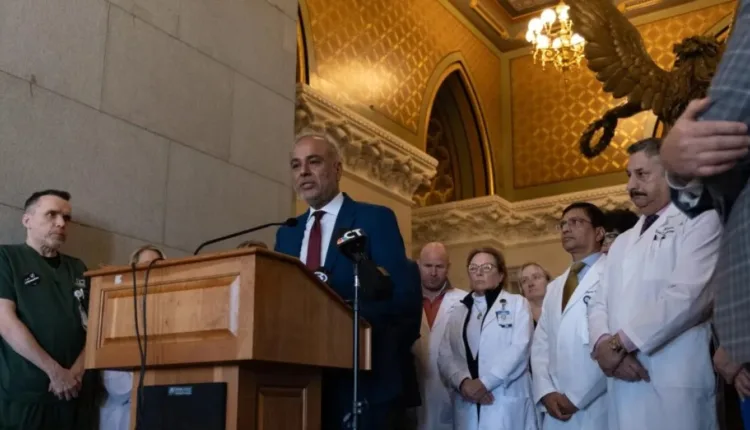
CT’s Top Health Care Priorities for 2024 Legislative Session Unveiled
TL/DR –
Lawmakers in Connecticut are set to debate significant health care reforms during the legislative session starting next month. Topics for discussion include protections for home care workers, improvements in the health care workforce pipeline, an expansion of Medicaid for those without permanent legal status, and reforms in elder care. However, financial constraints may be a limitation, with only $30 million available to add to the preliminary budget without breaking the spending cap.
Key Health Care Priorities for Connecticut’s Legislative Session
The upcoming Connecticut legislative session will address key health care priorities such as protections for home health care workers, the improvement of the health care workforce pipeline, expansion of Medicaid for people without permanent legal status, and additional services and safeguards in the elder care sector. The short, three-month session will run from February 7 to May 8, 2024.
Notwithstanding the limitations, lawmakers are gearing up to tackle major health care reform issues. The death of a home care worker last year has spurred calls for enhanced protections. Meanwhile, staffing shortages in the health care industry have led to lawmakers seeking ways to attract and retain providers.
Elder care sector problems such as complaints about the quality of care in nursing homes, lack of oversight in the home care industry, and delays in the approval of hospital mergers and acquisitions, have motivated some lawmakers to examine potential changes to the state’s certificate of need process. Advocacy groups continue to push for key proposals such as the expansion of Medicaid regardless of immigration status and the legalization of lethal medication for terminally ill patients.
Protections for Home Care Workers
Advocates are urging lawmakers to increase protections for home care workers following the tragic death of visiting nurse Joyce Grayson. A particular focus is on home settings, where workers often find themselves in potentially dangerous situations.
To address this, one proposed solution is the introduction of an escort service for home care workers. Legislators suggest financial support for this initiative to come from both Medicaid and private insurers. Additionally, it is proposed that home care agencies develop risk assessment profiles for their clients and their residential areas.
Health Care Workforce
Legislators are looking to tackle workforce pipeline issues this year, with a focus on enticing students to pursue careers as emergency medical technicians, paramedics, nurses, and certified nursing assistants through the use of virtual reality programs in schools. State funds are being sought to back this initiative.
Elder Care Reforms
Several proposals for elder care reform are under consideration, including expanding background checks for home care workers, increasing training opportunities for caregivers, boosting funding for the ombudsman’s office, and implementing a program for presumptive eligibility for Medicaid.
Medicaid Eligibility Expansion
Lawmakers are considering expanding Medicaid eligibility to undocumented children up to the age of 18. This is seen as a possible solution in the broader discussion of health care accessibility and affordability.
Aid in Dying
Despite facing opposition in previous sessions, advocates for “aid in dying” legislation, which allows terminally ill patients the choice to take a lethal dose of medication, are hoping to revive the issue in the upcoming legislative session. The process and timeline for this potential legislation remain topics of ongoing discussion among lawmakers.
—
Read More Health & Wellness News ; US News
